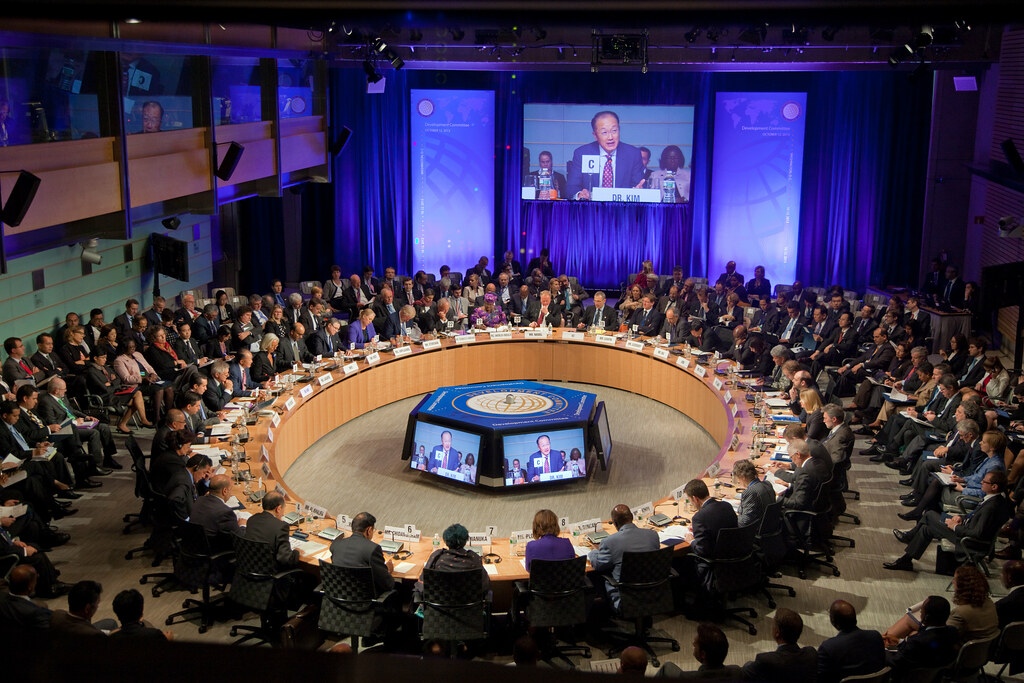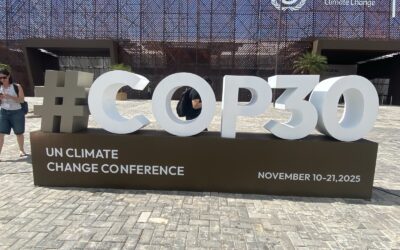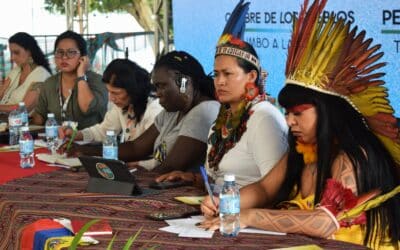World Bank Board set to decide on its role in proposed new global forest finance mechanism
UTRECHT, 20 October 2025 — With a crucial decision scheduled for October 21 regarding the World Bank’s proposed role in the Tropical Forests Forever Facility (TFFF), the Global Forest Coalition (GFC) is urging governments, Indigenous Peoples, Local Communities, and civil society to reject the proposed new global forest finance mechanism.
While the Bank has not yet published a public agenda for that date, several media outlets, including Bloomberg, report that the Board will decide on October 21 whether the Bank takes on the roles of trustee, treasury manager, and secretariat of the TFFF.
“The World Bank’s decision is not a mere administrative detail; it will decide whether forests are safeguarded as living ecosystems or traded as speculative assets,” said GFC Policy Director Mary Louise Malig. “Approving the TFFF would lock us into yet another failed experiment in financializing nature.”
At the heart of GFC’s concern is the way the TFFF commodifies forests, treating them as financial assets subject to investment returns, liquidation risks, and payouts that are not even guaranteed. Far from empowering those who live with and protect forests, the design channels most funds through national governments while offering Indigenous Peoples and local communities only limited, uncertain access. Governance arrangements similarly sideline rights-holders, granting them at best token consultative roles while decision-making power rests with governments and financial institutions.
“This is not about conserving forests; it is about conserving the power of elites over forests,” said Malig. “Indigenous Peoples and frontline communities are again expected to take the risks without real decision-making authority or reliable funding. It is the continuation of a free market model dressed up as climate finance.”
Critics also warn that the TFFF’s simplistic promise of paying per hectare of standing trees per forest conserved fails to address the real drivers of deforestation, such as industrial agriculture, mining, and corporate supply chains.
“You cannot solve systemic deforestation by dangling a small per-hectare payment while ignoring the bulldozers of agribusiness and extractive industries,” said Pablo Solón, Executive Director of GFC member group Fundación Solón and co-author of the report TFFF: A False Solution for Tropical Forests. “The TFFF is a distraction that diverts attention and resources from real solutions like regulation, corporate accountability, and direct financing for Indigenous and local initiatives.”
“All the financial schemes put in place for forest conservation supported by the World Bank continue to fail people. They are in place rather to favour capitalist investors instead of solving the deforestation issues; REDD+ is a reference,” added Kwami Kpondzo, Executive Director of the GFC member group Centre pour la Justice Environnementale -Togo. “TFFF is taking the same direction, where Indigenous Peoples and Local Communities’ rights will be sacrificed once again in the name of conservation.”
Similar patterns are evident across the Global South, where World Bank-backed conservation finance schemes have repeatedly failed to stop deforestation or secure community rights. In Indonesia, one of the world’s largest tropical forest countries, these approaches have deepened social and ecological injustices rather than resolving them.
“Indonesia has long served as a testing ground for World Bank-led ‘green finance’ projects, with the same results each time: forests lost, agrarian conflicts rising, and Indigenous rights ignored,” said Boy Sembiring, Executive Director of the GFC member group WALHI–Indonesia. “Mechanisms like the TFFF only extend the control of global financial institutions and corporations over people’s lands, reinforcing a green capitalism rooted in imperialism. What we need is not another market-based scheme to trade forests, but rather, genuine state commitment to protecting community-managed territories and stop extractive industry expansion.”
Supporters of the TFFF often present it as a bold, anti-colonial initiative of the Global South, led by Brazil, and therefore beyond reproach. Yet the irony is hard to ignore: the original blueprint was incubated in the boardrooms of the World Bank and on Wall Street, not in forest communities. Today, some of the world’s biggest polluters and investment banks are lining up to back it — precisely because it leaves their climate-destructive business models untouched.
“If this fund really threatened agribusiness, mining, or fossil fuels, would financiers be so eager to get a cut?” asked Solón. “The answer is obvious. The TFFF is being sold as decolonial, but in reality, it risks entrenching the same extractive financial logic that drives deforestation in the first place.”
GFC is calling on World Bank member countries to disclose their internal assessments and agendas, and, in light of the flaws identified, to refuse the roles currently envisaged. True forest protection requires direct finance to Indigenous Peoples and local communities, ending the financialization of nature, and embedding strong safeguards, transparency, and enforceable legal frameworks to hold corporations and governments to account.
“We are not saying forests don’t need funding, they urgently do,” said Malig. “But they need funding that strengthens rights, secures justice, and tackles the industries driving deforestation. The TFFF does none of this. It is a false solution that risks locking in failure for another generation.”
As October 21 approaches, and COP 30 in Belém and beyond, GFC urges Indigenous Peoples, civil society, parliamentarians, and progressive governments to reject the TFFF and avoid repeating past mistakes.
“This is a moment of decision not only for a finance mechanism but for forest justice itself,” said Solón. “If the Bank refuses to play its part in legitimising this scheme, it would send a powerful signal that the era of false solutions is over. If it does not, then civil society will make sure the world knows who chose financialization over forests, justice, and people.”




